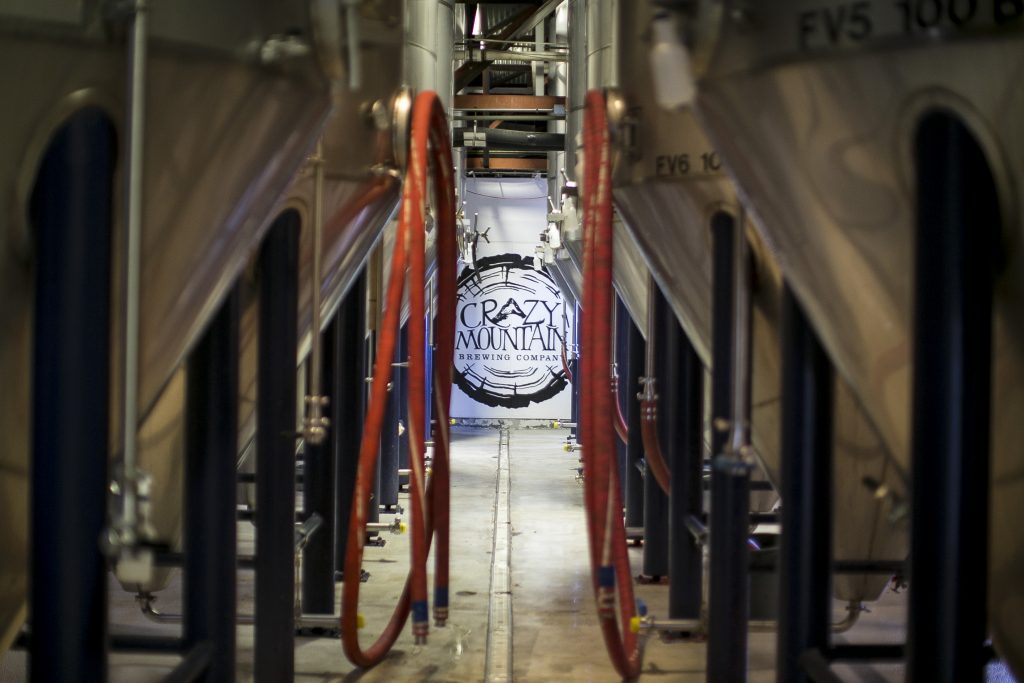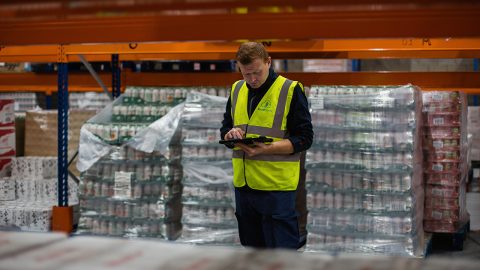Crazy Mountain Brewing Company stays grounded amid rapid ascent
Craft brewing is an industry with many success stories, but there’s only one outfit that can claim eight-fold growth almost overnight. Founded in 2011, Crazy Mountain Brewing Company has gone from a small brewer with capacity for about 15,000 barrels annually to a significant producer capable of 80,000—with distribution in 22 states and nine countries, and facilities in both Denver and the Vail Valley.
It’s been a steep ascent for founders Kevin and Marisa Selvy, who met during a hurricane in, of all places, a taproom at San Francisco’s venerable Anchor Steam Brewing. The couple’s financial savvy, determination and ability to produce great-tasting beer has propelled the young operation to become one of the fastest-growing companies in Colorado. Crazy Mountain prides itself on crafting unique brews that stand out on store shelves, hinting at the company’s irreverent style with names like Horse Shoes & Hand Grenades American ESB and Hookiebob IPA.
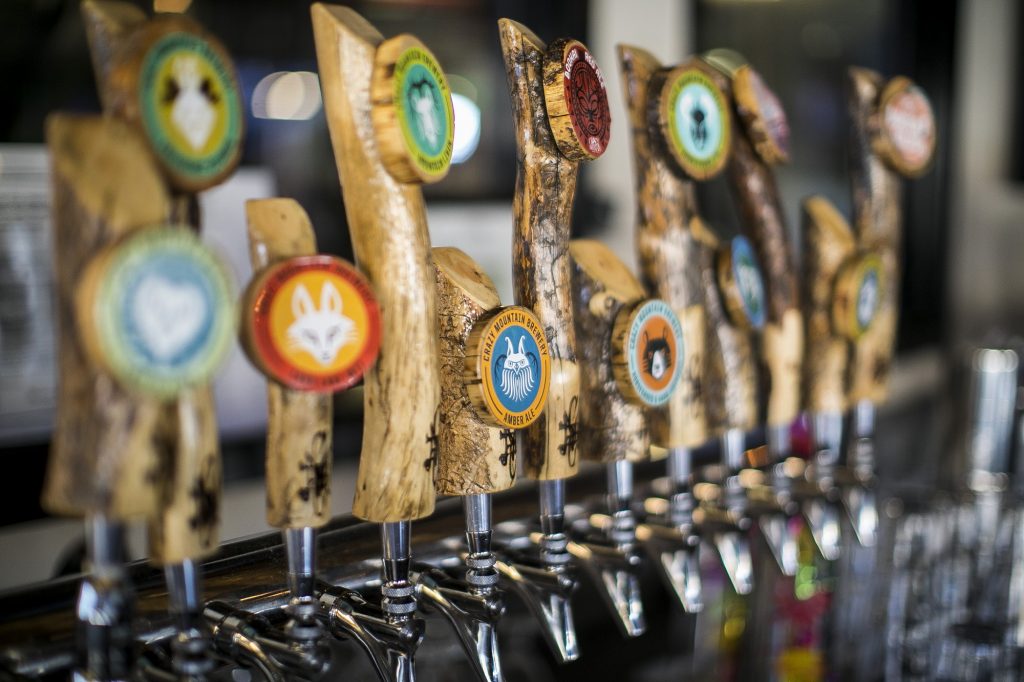
Through all its success, the company has maintained the attitude and agility of a small brewery that puts family first, innovates in its industry, and has a lot of fun in the process. It’s a balancing act that reflects a unique company culture and skill at their craft, with support from technologies like Windows 10, Skype for Business, and Office 365 that help them collaborate across distances and work smarter overall.
Scaling Crazy Mountain
Craft brewers are not so much competitors as comrades, says Marisa Selvy—and that camaraderie has played a big part in the company’s success. In one of the industry’s more remarkable expansions, Crazy Mountain was able to acquire its Denver facility through an unusual deal with legendary Colorado brewer Breckenridge.
“In 2011, Breckenridge’s director of operations was on vacation in Vail and came across our brewery,” says Selvy. “They were building their dream facility and leaving their existing facility as is. Literally, I think they only took two forklifts.”
Breckenridge offered the facility to the Selvys. Acquiring an entire, turnkey operation was an enormous expense for a small brewery like Crazy Mountain, but because the acquisition would allow them to grow far more quickly than they could otherwise, they decided to go for it.
“It was a handshake deal the whole time,” Selvy says. “It was all done on good faith.”
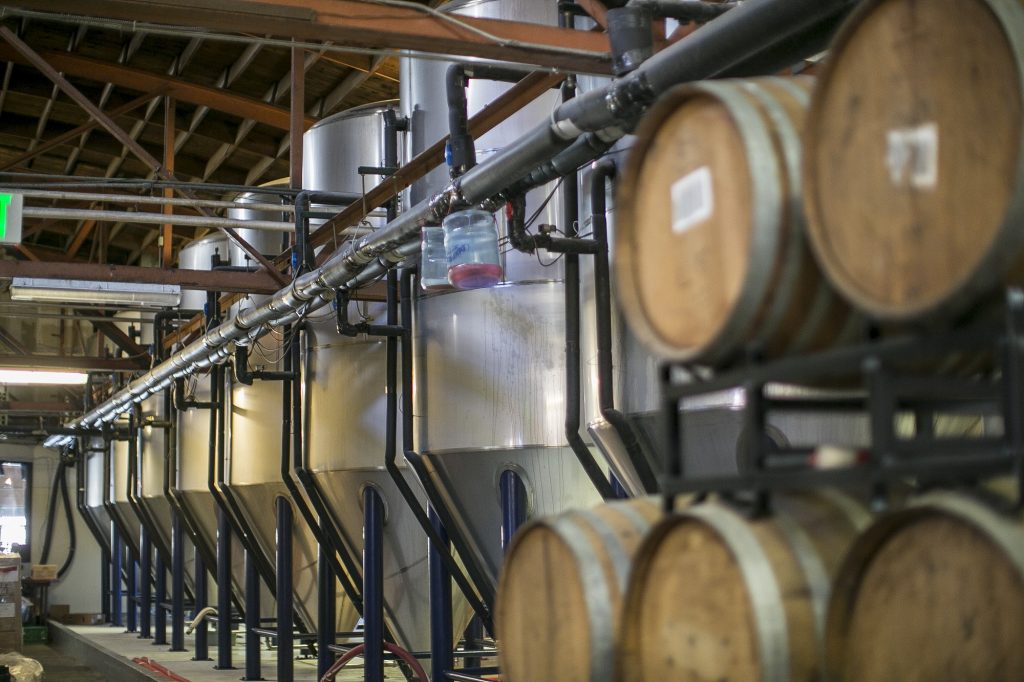
It took the Selvys three years to source money for the purchase, and during that time, Breckenridge was approached by several different breweries, including industry giants who were offering cash deals for the multi-million-dollar property. But Breckenridge held out.
“They wanted another mountain-born brewery to be able to take the space over,” Selvy says. “It’s amazing in the craft beer industry how everyone supports each other.”
With the new facility, Crazy Mountain was able to grow eight-fold almost overnight, a feat that would have taken several years through organic growth.
“When we moved in, it took us 48 hours before we brewed our first batch,” she says. “Since then, we’ve been able to increase our revenue by 800 percent.”
A collaborative industry
The company’s sudden growth came with its own challenges. The Selvys now needed to manage processes across both facilities and an ever-expanding sales and distribution force. Further complicating matters was their location in the Rockies, where Mother Nature frequently has her way with business operations. During Colorado’s long winter, snowstorms snarl travel between the facilities, and Vail Pass is regularly closed.
To solve these issues, the company has turned to Skype for Business. Selvy splits her weeks between the facilities, and uses Skype most days to keep in touch with her entire staff. They have morning rundown meetings to align on the day’s docket, and also hold Skype videoconferences with external agencies.
“I prefer the face-to-face interaction—old-school style but using new technology,” she says. “With Skype, we’re able to accomplish things that we couldn’t if it was just a phone call.”
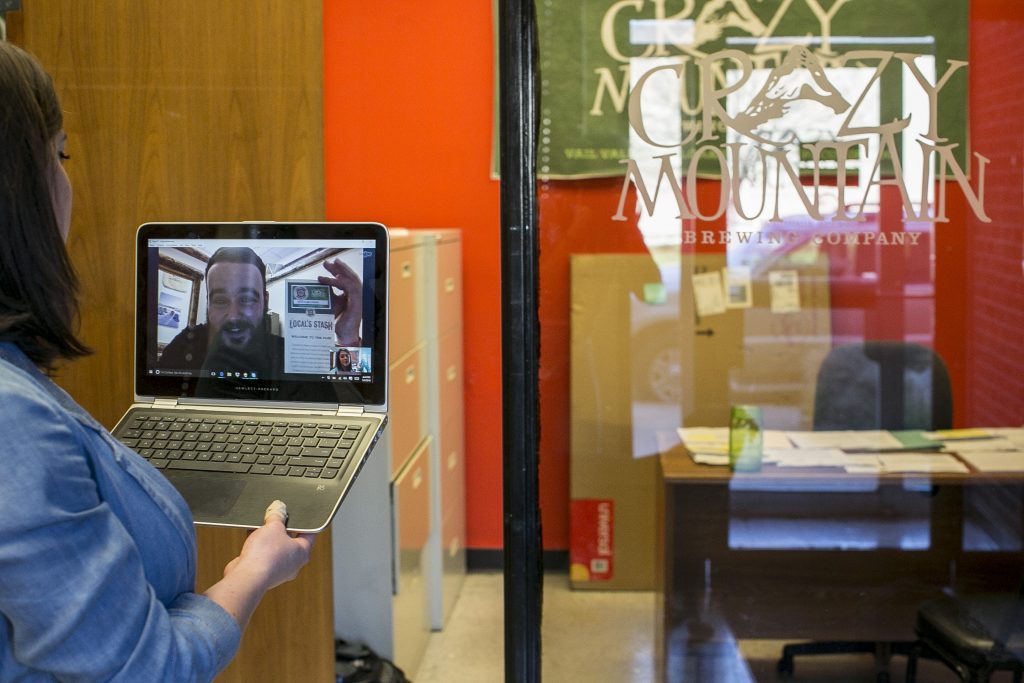
With sales reps scattered across the country and distributors around the globe, the company’s sales and finance teams are also heavy users of Skype, along with other collaboration tools in the Microsoft Office 365 suite. The teams use Office 365’s synchronized editing capabilities in PowerPoint, Excel and Word to create presentations or tweak contracts across distances.
“With PowerPoint and also Excel, our VP of sales is able to work with associates on the same document simultaneously,” Selvy says. “Everyone can see the changes and collaborate in real time.”
The industry’s collaborative nature also means that breweries often work together on distribution arrangements, events and innovative recipes. Crazy Mountain participates in an ongoing event called Local’s Stash, where the task is to come up with a new beer style every week.
Creating 52 new recipes per year is a steep challenge, undertaken using Skype to gather everyone in the production department from each facility to drink beer and engage in a lively discussion about the next brew.
“The recipes get pretty eclectic,” Marisa says. “Should we do a triple chocolate porter? Should we do something that involves hibiscus or prickly pears?”
The technology behind the beer
The way Crazy Mountain approaches its back-office IT has also become more connected in the past year, with the company upgrading its ERP and payroll systems and making the move to Windows 10.
According to CFO Rick Brough, using Windows 10 as the operating environment contributed to upgrades going smoothly, and the seamless integration of the new back-end systems with business tools like Excel gives the growing operation tremendous advantages.
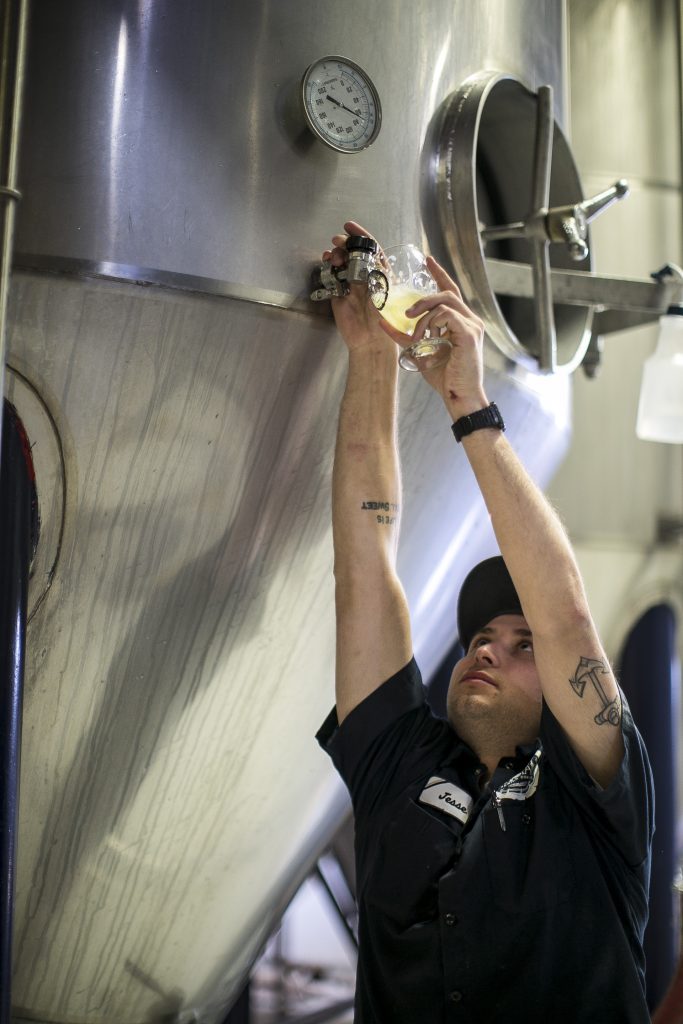
“Traditionally, a brew house will keep paper brew logs on clipboards, where brewers track the ingredients they use,” Brough says. “We use those logs to account for inventory, cost of goods sold and future revenue.”
But paper logs come with several disadvantages. Inconsistencies and irregularities can arise as the company consumes its inventory before the paperwork is submitted, and according to Brough, the logs themselves are not always in great shape when they arrive at his desk.
“They come to me all crusty, covered in beer,” he says. “I just want to wash my hands when I touch my computer, because my laptop doesn’t deserve this.”
To solve those problems and accelerate the exchange of information between brewers and the back office, Brough upgraded the clipboards to electronic brew logs on Windows 10 tablets, which update the ERP system in real time.
“We can do a lot of bookkeeping and accounting that small breweries often don’t have the tools to do,” he says. “Outfitting the production facilities with tablets has given us the ability to really control our budget.”
Down the road
Despite their accomplishments, the Selvys say they’re just getting started. Eventually, they want to distribute in all 50 states, but a more immediate goal is to build their international distribution.
“There’s a huge demand for American craft beer overseas,” Marisa says. “It’s getting really big in Southeast Asia, Scandinavia and some spots in the U.K.”
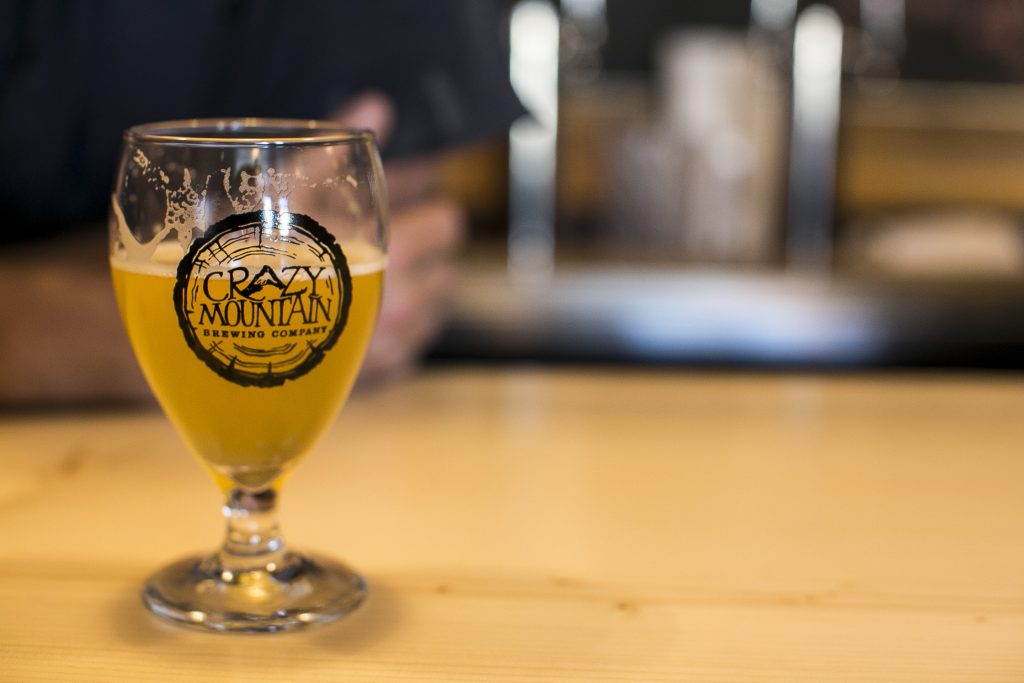
Further down the road, they’d like to take a page from Breckenridge and build their own facility from the ground up in the Vail Valley. For a company that started from scratch to become one of the fastest-growing businesses in Colorado, it’s a feat that may not be as far off as it seems.
“Our whole attitude has been that yes, there are a ton of challenges,” she says, “but if you learn to defy convention and forge your own path, you can achieve aggressive growth.”

